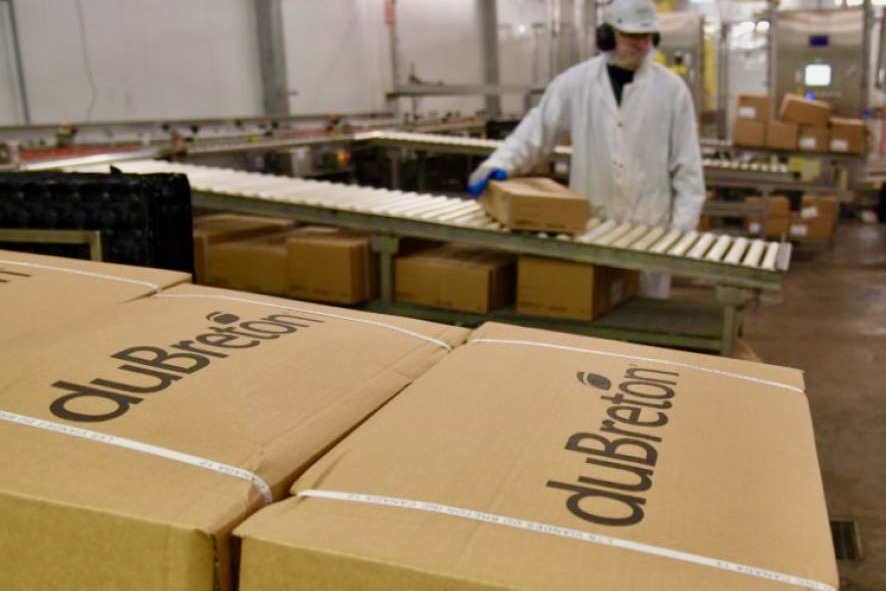Organic pork firm seeks out of Quebec’s marketing system
By OrganicBiz
| 3 min read

<p>(DuBreton.com)</p>
A Quebec organic pork producer and packer is seeking a clean break for organic and Certified Humane producers from that province’s collective hog marketing arrangement.
Viandes duBreton, based at Saint-Bernard, about 50 km south of Quebec City, said Aug. 22 it has put a request before the Regie de marché agricole de Quebec (RMAAQ) to seek exclusion from the marketing plan and authorization to instead negotiate marketing contracts directly with organic and Certified Humane producers.
Provincial legislation allows for such a request but has never been invoked by a producer in practice, the company said in a release. The RMAAQ hasn’t yet scheduled a date for a meeting to further discuss the request.
In its request, duBreton said the current marketing system and regulations don’t have the capacity to adapt to changing consumer demand or innovation.
The request comes after the province’s hog producer organization, Éleveurs de porcs du Québec, and major hog buyers operating in the province reached their new marketing agreement in April — a deal reached in the wake of major pork packer Olymel permanently closing one of its five Quebec packing plants.
The EPQ said at the time that the new agreement had provisions which would ensure market development for “niches” such as organic and Certified Humane.
In April, duBreton president Vincent Breton was quoted as hailing the agreement which would “finally” allow for specialized marketing of such products and described it as a step in the right direction for the EPQ, though he cautioned at the time that full recognition of those niches remained a “challenge.”
In duBreton’s Aug. 22 release, however, Breton described the resulting marketing system as “rigid and obsolete.”
The marketing plan, he said, requires payment of levies to the EPQ for marketing and promotion but has “never invested a single dollar” in promotion of organic or Certified Humane pork. Rather, marketing, promotion and research funds and industry aid programs are geared toward “mass production.”
“When Starbucks closes a branch, it’s not the little corner cafe that pays for that,” Breton said Aug. 22.
The number of Quebec hog producers enrolled in the province’s ag income stabilization program (ASRA) has dropped from about 1,700 in the 1990s to about 500 in 2022, of which fewer than 100 can be considered independents, duBreton said.
From duBreton’s perspective, “it’s clear that independent hog producers have no other options and are prisoners of the system,” the company said, adding it predicts fewer than 50 will remain within two to three years if nothing changes.
The company estimated it has paid levies of $1.7 million into industry programs in the past year that support larger “commodity” pork operations, describing the resulting system as “Robin Hood in reverse.”
EPQ officials were quoted Aug. 25 by La terre de chez nous, the farm journal of Quebec’s Union des producteurs agricoles, as saying they were opposed to the idea of excluding producers from the provincial marketing plan but were still reviewing the specifics of duBreton’s request.
duBreton, which has been in business since 1944, today operates three Canadian processing plants plus one in the U.S., along with two feed mills and several farms in Eastern Canada. The company in 2019 announced it would concentrate its operations on organic, Certified Humane and antibiotic-free pork, which it sells today in Quebec, Ontario and the U.S.
“We are fully convinced that the Canadian agricultural situation does not allow breeders regulated by the commodity model to be competitive either in the North American market or even in the global market,” Breton said in 2019.
“In our opinion, the complete conversion of production towards speciality programs, not subject to the ups and downs of the market, is the path forward in order to ensure the company’s sustainability.” — Glacier FarmMedia Network


